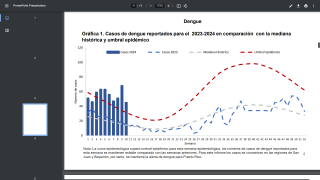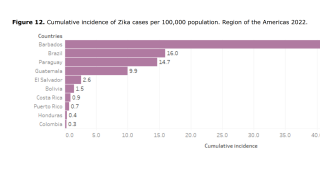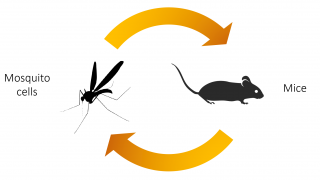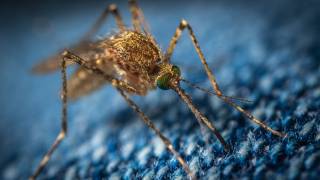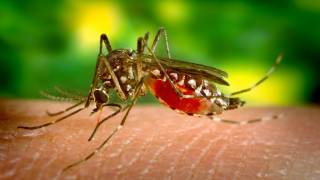A Small Molecule May Block Zika Virus Infections

A recent study found a new small molecule has the ability to block Zika virus infection in human cells (in vitro) and in mice (in vivo).
This molecule, 6-deoxyglucose-diphyllin (DGP), is a broad-spectrum antiviral that potentially blocks infection by Zika viruses.
And, DGP may also inhibit human infections by other flaviviruses.
This study published in EbioMedicine in September 2019, reported the DGP molecule targets the cellular endosomal acidification, preventing the entry of the virus into the cell, consequentially inhibiting infection.
Cellular and virological experiments showed that DGP blocked Zika at a pre-fusion step or during fusion, which prevented the delivery of viral contents into the cytosol of the target cell.
Furthermore, mechanistic studies revealed that DGP prevented the acidification of endosomal/lysosomal compartments in target cells, thus inhibiting ZIKV fusion with cellular membranes and infection.
And finally, DGP effectively prevented Zika virus-induced death in mice during this limited study.
The study of ZIKV infection in animal models has been possible due to the availability of mice strains that are susceptible to infection.
Because of its effectiveness against Zika virus infection in mice, this new inhibitor shows great potential for its use in the clinics, concluded these researchers.
This is important news since there are urgent needs for anti-Zika virus (ZIKV) drugs to prevent mother-to-child transmission of ZIKV, new infections in high-risk populations, and the infection of medical personnel in ZIKV-affected areas.
So far, no specific antiviral has been approved for the treatment of ZIKV infections.
Acetaminophen is usually used to control fever and pain, antihistamines are used for pruritic rashes, and fluids to prevent dehydration in ZIKV-infected patients.
However, acetylsalicylic acid and non-steroidal anti-inflammatory drugs are contraindicated because of an increased risk of hemorrhagic syndrome reported with other flaviviral infections, as well as the risk of Reye’s syndrome after viral infection in children and teenagers, reported a September 2019 study.
The Zika virus is a mosquito-borne flavivirus that recently caused outbreaks in humans in various countries, which resulted in fetal abnormalities, such as microcephaly and neurological diseases in adults including Guillian-Barre syndrome.
ZIKV, which belongs to the Flavivirus genus, is a member of the Flaviviridae family along with several other important vector-borne human pathogens, such as the West Nile virus, dengue virus 1, tick-borne encephalitis virus, and Japanese encephalitis virus.
The flavivirus genus is the largest among the Flaviviridae family with 53 different species and can be further divided into non-vector, tick-borne, and mosquito-borne clusters. Zika (strain MR 766) was first isolated in 1947 in the Zika forest of Uganda.
The first human cases of Zika infections were reported in Africa in the 1950s and later in Asia, but remained restricted to these regions until 2007. A large outbreak occurred in the Federated States of Micronesia, followed by outbreaks in French Polynesia, New Caledonia, and the Cook Islands in 2013 and 204.
Although ZIKV is known to be primarily transmitted through mosquito bites, some studies have shown that it can also be sexually transmitted.
For these reasons, ZIKV was recognized in 2016 as a Public Health Emergency of International Concern by the World Health Organization (WHO).
Recently, the state of Florida reported it is monitoring over 20 pregnant women infected with the Zika virus.
Recent Zika virus news
- Zika Virus Returns to Malaysia
- France Reports 1st Locally-Acquired Zika Case
- Zika’s Asian Genotype Impacting Women in Africa
- Puerto Rico’s Insufficient Condom Use
This new research was supported by the Albert Einstein College of Medicine. And, the authors declare no competing interests.
Zika updates published by Zika News
Our Trust Standards: Medical Advisory Committee

